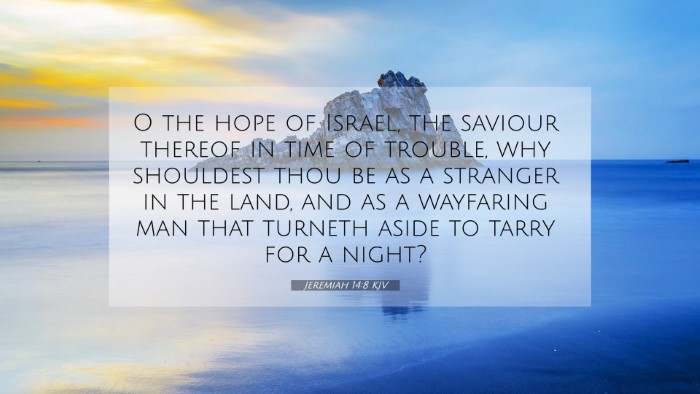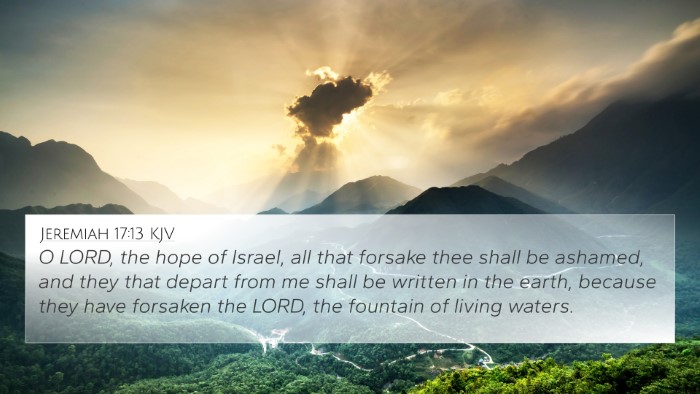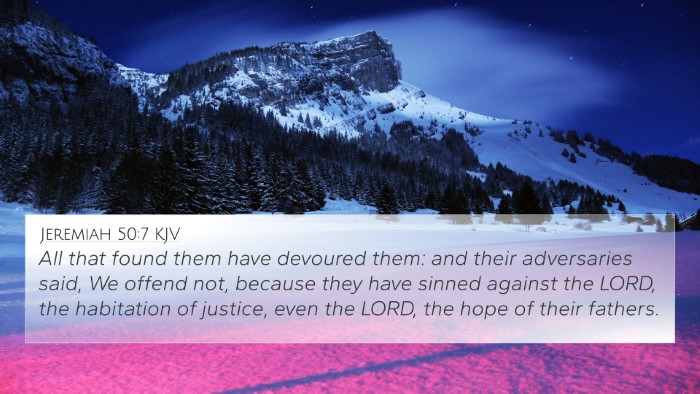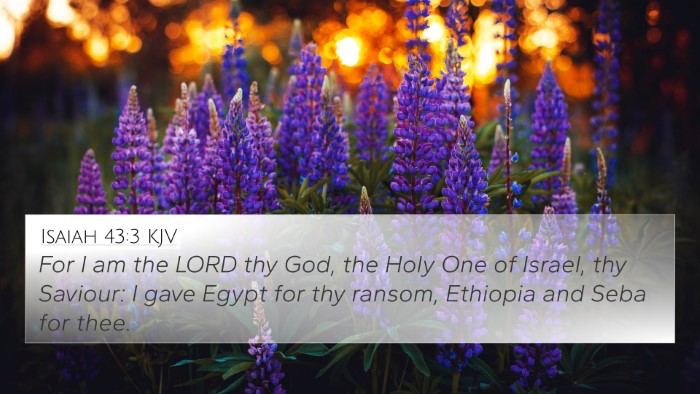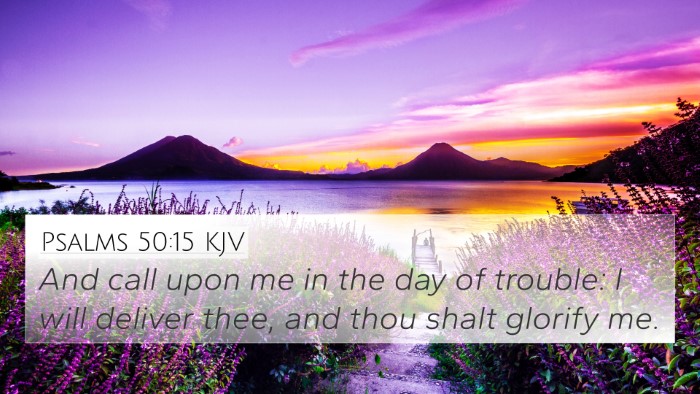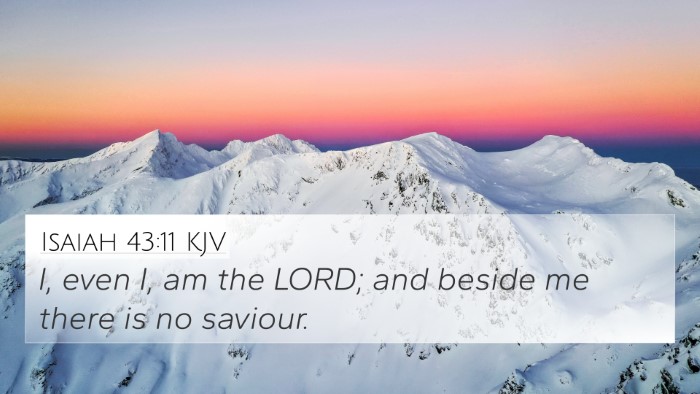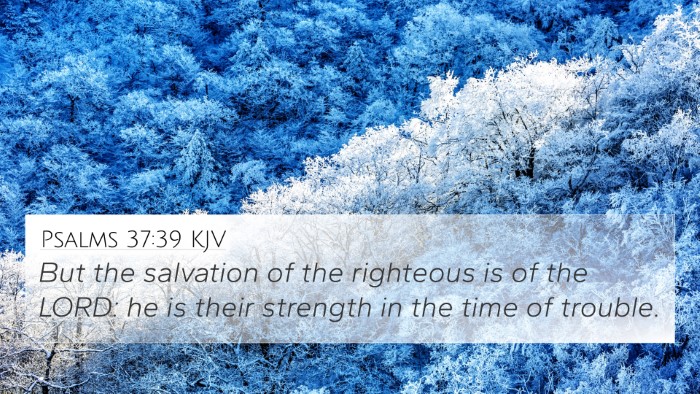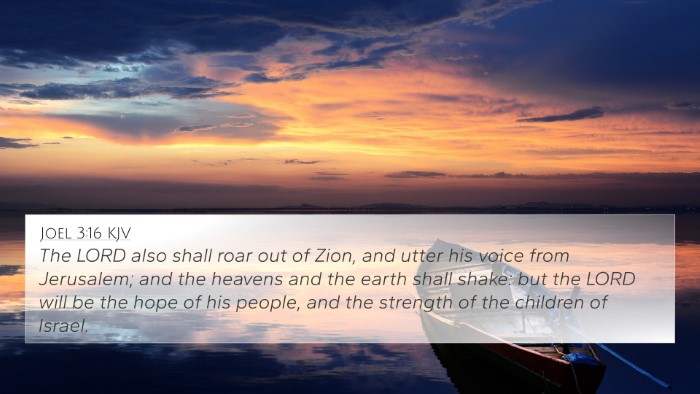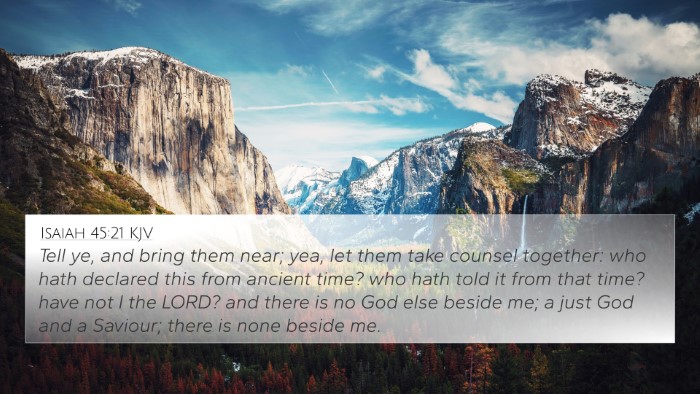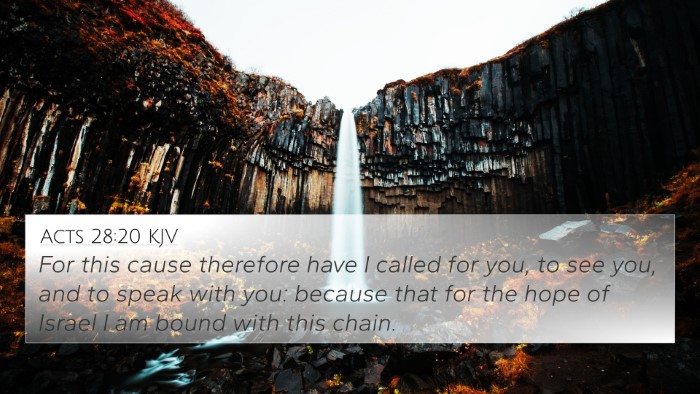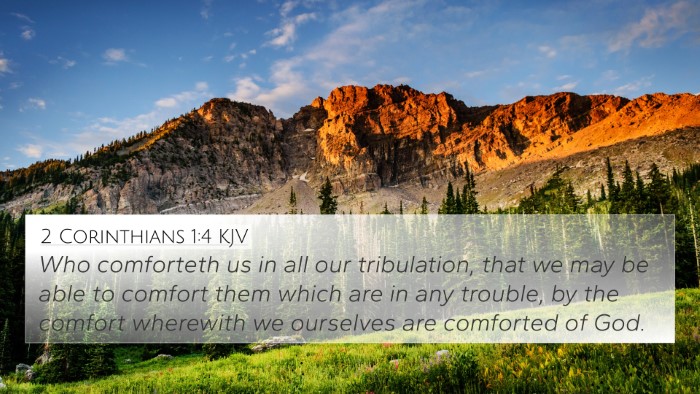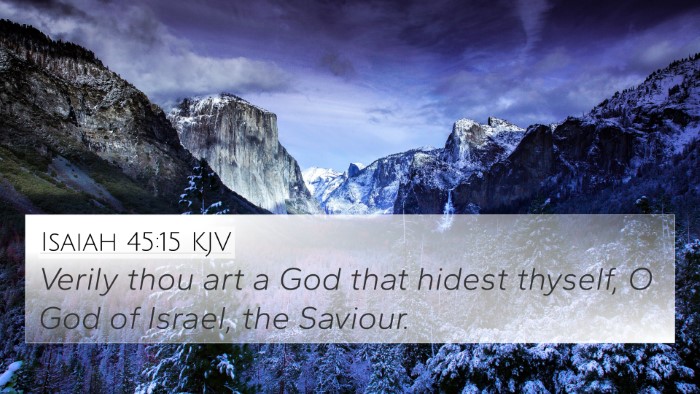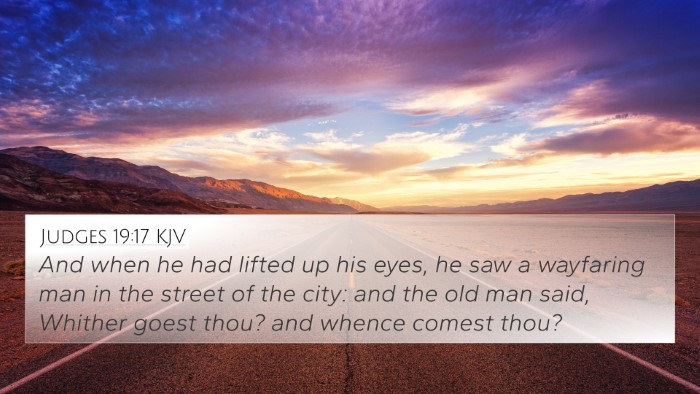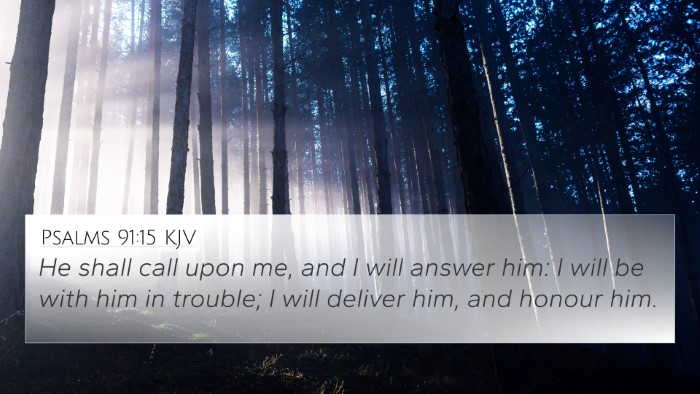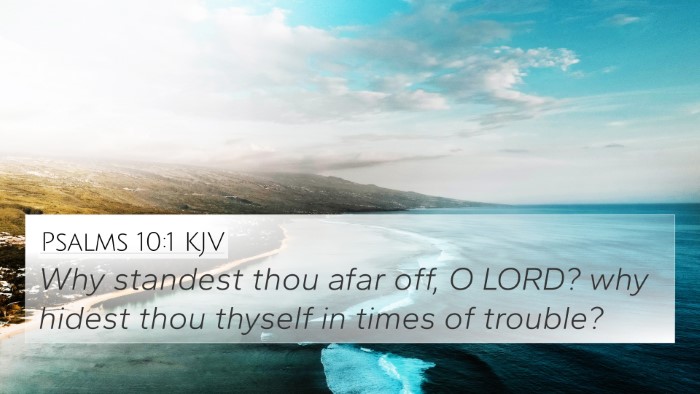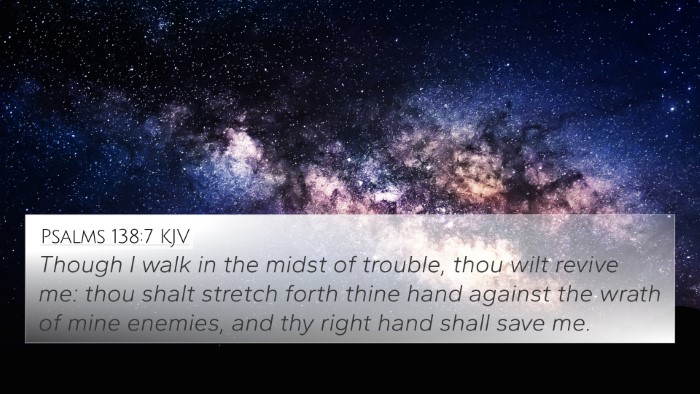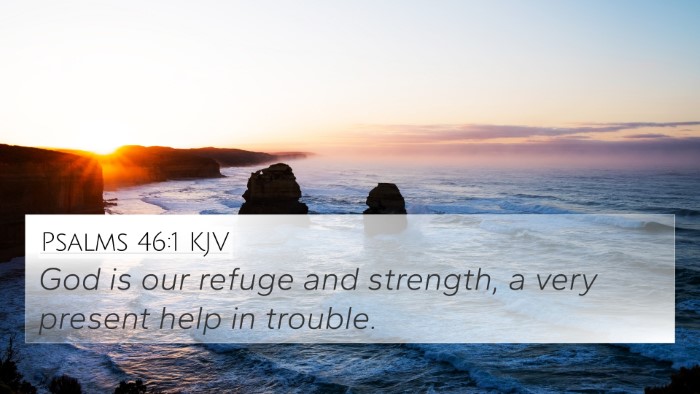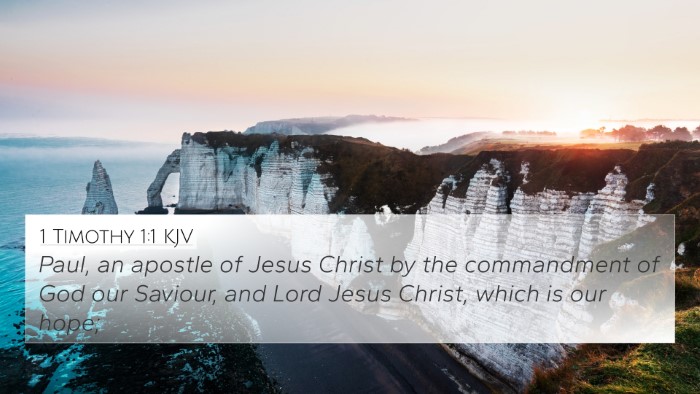Understanding Jeremiah 14:8
Jeremiah 14:8 states, "O thou hope of Israel, the saviour thereof in time of trouble, why shouldest thou be as a stranger in the land, and as a wayfaring man that turneth aside to tarry for a night?" This verse presents a poignant plea for help and speaks to the character of God as the hope and savior of His people during their distress. In this analysis, we will explore the meaning of this verse by integrating insights from various public domain commentaries.
Contextual Background
Jeremiah, a prophet during a time of great turmoil for Judah, conveys God’s message to a people in dire straits. The imagery of God as a "stranger" indicates a perceived distance or absence of divine presence that the people of Israel felt amidst their troubles. They were suffering from drought and famine, which often carried spiritual implications in biblical texts, reflecting their separation from God.
Key Interpretations
-
Hope of Israel: This phrase emphasizes God’s role as the ultimate source of hope for His people. Commentators like Matthew Henry explain that despite the overwhelming circumstances, God remains the foundation of Israel's hope.
-
The Role of God in Times of Trouble: According to Albert Barnes, God is seen as a savior who intervenes in their struggles. This aligns with themes throughout scripture that underscore God’s provision and assistance in times of need.
-
Strangers and Wayfaring Men: This imagery illustrates isolation and the fleeting nature of human existence. Adam Clarke notes that people may often feel abandoned, as if God is absent or only visiting, rather than present to sustain them.
Biblical Cross References
Understanding Jeremiah 14:8 also involves examining its connections with other scripture. Here are some cross-references that illuminate its meaning:
- Psalm 42:11 - "Why art thou cast down, O my soul?" - echoing the despair felt by God's people.
- Isaiah 30:15 - "In returning and rest shall ye be saved; in quietness and in confidence shall be your strength." - reinforcing reliance on God.
- Micah 7:7 - "Therefore I will look unto the Lord; I will wait for the God of my salvation." - a declaration of hope amidst sorrow.
- Matthew 11:28 - "Come unto me, all ye that labour and are heavy laden, and I will give you rest." - revealing Jesus as the ultimate hope connected to the Old Testament.
- John 14:1 - "Let not your heart be troubled: ye believe in God, believe also in me." - connecting the hope of Israel with the faith in Christ.
- Romans 15:13 - "Now the God of hope fill you with all joy and peace in believing." - a New Testament affirmation of God’s promise.
- 2 Corinthians 1:10 - "Who delivered us from so great a death, and doth deliver: in whom we trust that he will yet deliver us." - a testament to God’s continuous salvation.
Thematic Connections
The thematic connections between Jeremiah 14:8 and other scriptures reveal a deep-seated longing for God's immediate presence and intervention. As reflected in the prophets and writings of the New Testament, the motif of God as a savior permeates biblical literature. Highlights from key commentaries include:
-
Divine Intervention: The theme of God responding to prayer and distress is consistent across both the Old and New Testaments. Tools for Bible cross-referencing can demonstrate this through comparative studies.
-
Human Vulnerability: Throughout the scriptures, the human condition is portrayed as frail and in need of a savior. Scholars like Albert Barnes underscore this need, providing a framework for how believers can turn to God in trials.
-
Theological Reflection: The connection between God's promises during Israel's crises and the fulfillment found in Christ signifies the continuity of divine revelation. This thematic exploration invites deeper cross-referencing of biblical texts.
Use of Cross-Referencing Tools
Engaging in cross-referencing effectively requires understanding various tools. Here are some notes on how to utilize Bible cross-reference resources:
- Utilize a Bible concordance to find verses related to specific themes or words found in Jeremiah 14:8.
- Leverage online Bible cross-reference guides that provide thematic connections across various books.
- Incorporate cross-reference Bible study methods to deepen understanding, enabling one to see connections between passages.
- Make use of Bible reference resources to identify parallels and enhance sermon preparation and personal study.
Conclusion
In conclusion, Jeremiah 14:8 serves as a reminder of the struggles faced by God’s people and their plea for divine intervention. The rich tapestry of cross-references deepens our understanding, connecting this verse with broader biblical themes of hope, reliance, and God’s unwavering role as savior. As we explore these connections, we are encouraged to recognize the intimate relationship between the Old and New Testament teachings on salvation and hope.


